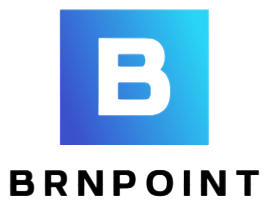Diploma Courses: Tailoring Education to Career Goals
In some cases, diplomas can offer a quicker route to a career path than a degree. They also allow for a more focused study experience which can be advantageous for those with limited time on their hands.
Each enrolled credential is validated with a real-time validation response, giving employers, government and other individuals confidence in their authenticity.
Credentials and Validation
One of the main reasons why diploma courses are becoming increasingly important in job market is because they help candidates get hired with a set of skills that are practical and usable. This means that they will be more efficient in their work and won’t require a lot of on-the-job training. This saves companies a lot of time and money as well.
In addition, many diploma courses are offered by reputable institutions and have been validated by credible validation services. This ensures that the credential is genuine and has not been falsified or tampered with.
Another benefit of diploma courses is that they are often shorter in duration than degrees, which makes them a more time-efficient option for students who wish to begin their career straight after completing high school or matriculation. Some diploma courses are also available online, which offers flexibility and enables students to study from any location with an internet connection and check this site https://lambang-toanquoc.org/. This is especially useful for working professionals who would like to bolster their skill sets but can’t afford to take extended breaks from their jobs.
Specialized Knowledge
In a world where jobs and careers are becoming more focused on specialized skills and knowledge, a degree can give you the specialized knowledge needed to succeed. Whether you’re studying for a Bachelor’s in Accounting or a Doctorate in Health Education, you’ll gain knowledge that can help you stand out to employers and advance within your career.

While job experience can be important, a degree shows that you’ve already demonstrated the ability to excel academically and can bring those skills to your workplace with minimal on-the-job training. Plus, studies have shown that those with a higher level of formal education report greater confidence levels at work than those with less education.
This can also increase your earning potential. In many countries and professions, those without at least a high school diploma may be severely limited in the number of employment opportunities or in their earning potential. In fact, in the United States, it’s illegal to even enlist in the military without a high school diploma.
Access to Opportunities
In a number of countries, job opportunities that were once reserved for university graduates are now accessible to people with diplomas. This is reshaping the world of work and introducing new attitudes about what it means to be qualified for different careers and roles.
While universities look for specific ATAR scores, and have a competitive application process to accept students into their limited-seat courses, diplomas are less reliant on these requirements. This gives students the opportunity to start their careers sooner and saves companies time and money as they don’t have to invest much in training new hires.
Additionally, a diploma course will explore one subject in-depth compared to the two or three subjects studied at A Levels. This enables learners to begin their career with the relevant knowledge and skills to make an immediate impact. This is especially true for vocation-based diplomas, which are designed to prepare learners for the careers they wish to pursue.
Continuous Learning and Professional Development
In a rapidly evolving job market, continuous learning becomes vital to professional development and career growth. Individuals who prioritize their own professional growth are better equipped to adapt to changing work practices, technology, and the demands of their industry.
In addition to enabling individuals to remain current on new trends and developments in their field, continuous learning also offers a number of personal benefits. These include opportunities to explore new interests, broaden one’s perspective of the world, and improve decision-making skills.
Diploma courses are also more affordable than specialization degrees and offer greater flexibility for those seeking to hone their skills. This makes them ideal for those looking to enter the workforce sooner rather than waiting years for a degree program. As a result, many employers consider those who hold diplomas to be more valuable candidates than those with costly degrees.







